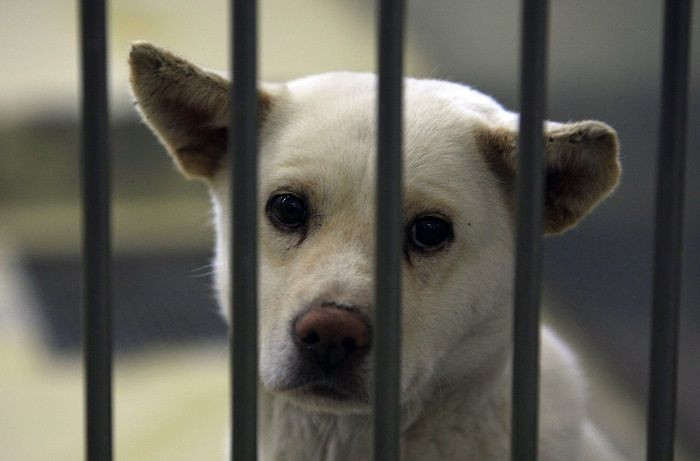Childhood Exposure To Pet Neglect, Cruelty May Have Similar Lifelong Effect As Domestic Violence

Children who witness their pet being physically abused or neglected are more likely to experience emotional distress later in life than those who don't, but only under certain circumstances, according to a recent study published in Anthrozoös.
Owning a pet is normally associated with better physical, mental and emotional health, but study authors Alberta Girardi and Joanna D. Pozzulo theorized that childhood exposure to human aggression toward pets may possibly cancel out these potential health benefits. Surveying more than 300 undergraduate students, the pair found that, depending on the level of attactment to to their pet, people who witnessed pet abuse when they were children were more likely to report worse anxiety and depression in later life than those who hadn't. This effect, the two speculated, is similar to the toll on mental health that children subjected to violent abuse of close family members often experience.
"The results are consistent with the assertion that bonding with pets may support mental health and that exposure to animal cruelty may lead to the development of internalizing symptoms," they wrote.
The student participants were asked to complete an online survey about their childhood pets. They were asked about the bond they had with their pets; if they witnessed neglect or cruelty toward these animals in childhood; and about any current symptoms of depression and anxiety. Those who witnessed pet abuse were also asked about its frequency and severity.
People who barely interacted with their childhood pets showed a similar tendency for depression and anxiety compared to those in the control group who weren't exposed to animal cruelty. However, those who moderately bonded with their abused pets had significantly higher levels of anxiety and depression than those who weren't exposed to pet aggression, even after controlling for exposure to family violence.
Surprisingly, children who developed the closest attachments or strong bonds to their pets didn't have the highest rates of anxiety and depression in adulthood and were significantly less likely to experience internalizing symptoms in early adulthood than those who only moderately bonded with their childhood pets, suggesting that the positive effects of a child-pet relationship could outweigh the harm done. Their depression and anxiety scores were higher than those who had established weak bonds with their pets in childhood, however,
Previous studies have revealed a strong correlation between animal abuse and family violence. According to a survey cited by The Humane Society, 71 percent of domestic violence victims reported that their abusers also targeted their pets. Despite the wide prevalence of animal abuse, though, few studies have investigated the effects of witnessing animal cruelty. A study conducted by Frank Ascione in 2007 found that 59 percent of children reported being "very upset" when they witnessed their pet being hurt or killed and another 33 percent said they were sort of upset.
"Although it is likely that a number of biological and environmental factors contribute to the development and prevention of internalizing disorders, the results of this current study suggest that these factors may include experiences with childhood pets," Girardi and Pozzulo wrote. They went on to conclude that "both bonding with pets and exposure to pet aggression should be considered when investigating the association between experiences with pets and mental health."
Source: Girardi, A, Pozzulo J et al. Childhood Experiences with Family Pets and Internalizing Symptoms in Early Adulthood. Anthrozoös. 2015.



























